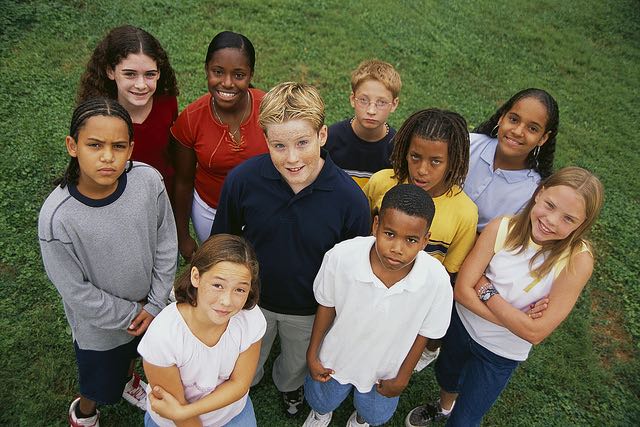
Parents who solely focus on ‘fixing behavior’ will leave their teenager feeling misunderstood, according to a new book, How Do You Hug a Cactus?, which advocates for ‘Reflective Parenting’ and understanding what goes on in the teenage brain.
Teaching teenagers how to understand their feelings is “key” to helping them mature into resilient and independent adults, says the author, Dr. Sheila Redfern, a London-based clinical child psychologist.
Gleaning insight from 30 years of work, she says: rather than focusing on stamping out difficult behaviors, parents should teach their kids to manage their feelings and relationships in safe ways.
“Understanding the neuroscience of the changing teenage brain can really help parents to empathize and connect with their teenage children,” said Redfern.
Although parenting teenagers is uniquely challenging—with concerns about social media use, self-harm, and risk-taking—this stage can be very fulfilling for all.
Reflective parenting allows parents to support teenagers in coming up with their own ideas about how they are going to meet challenges when these arise.
“The focus is on keeping a connection with your teenager and helping them to manage, sometimes overwhelming and unwanted, feelings. This is one of the most important skills for life you can teach your teenager.

“By drawing out from your teenager how they are planning to solve difficulties—without pointing out flaws but simply offering another perspective of any potential downsides—you will help them to gain independence and develop skills for life while staying connected to you.”
DID YOU KNOW? Video Games Are Not Associated with Harming Brains of Preteens, According to a New Study
One key concept of reflective parenting is for parents to check in with themselves: if they are experiencing strong emotions they should take some time and reflect, before launching a conversation.
Then the parent can approach a teen’s emotional distress using validation and empathy, by describing how they are feeling and avoiding putting their own opinion across.
“You take this self-reflective step first, then you can give your full attention and curiosity to your teenager’s perspective, and they will experience you as somebody steady, consistent and trustworthy,” explained Redfern.
“This can be extremely hard for parents as we worry a lot about our teenagers and regulating emotions (of our own) is difficult sometimes.”
She notes that the teenage years are an extremely crucial time for mental development, and teens are much more at risk of mental illness.
“This is not just a time of physical and neurological change, but also of great vulnerability. It’s during this period of development that teenagers are much more likely to engage in risky behavior and develop a mental illness.”
Research suggests that there are three basic bio-behavioral systems that enable humans to adapt to a complex social environment: the reward system; the ‘mentalizing’, or ‘social cognition’ system, which is our capacity to understand ourselves and others in terms of our feelings, desires, and values; and finally the stress and threat system.
CHECK OUT: 10 Things I Wish I Would Have Told My Kids

Redfern says that during adolescence, these three bio-behavioral systems are being reorganized in the brain and this reorganization of the systems leads to patterns of thinking, behavior and responses to others that may be difficult to understand, seem illogical, highly reactive, or self-destructive.
This is because teens process information with the amygdala—the emotional part of the brain, leading them to be preoccupied with their own emotions, and less able to tune into other people.
“When we look at brain development, it’s factually inaccurate to describe an 18-year-old as an adult. Our brains haven’t fully developed until we’re in our mid-twenties. From the age of 18 until around 25 years old, sometimes even later, our brains are still developing.”
PARENTING POLL: Parents Are Most Proud of Their Child’s Ability to Show Empathy and Kindness, Says New Poll
She describes that this emotionally charged brain can make assumptions that feel like fact, and become a mindset—thoughts like ‘no one likes me, I am alone’.
When teens lose their ability to be reflective because of changes in their brains—resulting in frequent states of high emotional arousal—parents can step in and help guide the process.
While reflective parenting may bring about a greater connection between you and your teen, and hopefully even a calmness and enhanced understanding of your relationship – it is important to maintain strong boundaries.
“Reflecting on thoughts and feelings alone is not the type of parenting being advocated here. Boundaries still count, and so does parental authority,” concludes Redfern, whose website has many articles that explain more.
RELATED: If Overly Anxious or Depressed, Study Shows That Focus on Past Successes Can Improve Judgement
None of us can be a reflective parent all of the time, because our emotions rise and fall along with events, but we can try to do better next time by learning some of these best practices.
NOTE: If parents have serious concerns about their teen’s mental health, please seek professional help, or call 911. You could try calling Parents Anonymous, a 50-year-old helpline for moms and dads in the US (at 1-855-427-2736) In England and Wales, you can try Family Line by calling 0808 800 2222.



















